- Home
- Kay Hooper
The Haviland Touch
The Haviland Touch Read online
Table of Contents
Title Page
Copyright Page
chapter one
chapter two
chapter three
chapter four
chapter five
chapter six
chapter seven
chapter eight
chapter nine
chapter ten
chapter eleven
chapter twelve
author’s note
Praise for
Kay Hooper
“Kay Hooper writes a wonderful blend of wit, whimsy, and sensuality . . . She is a master of her art.”
—Linda Howard
“A multi-talented author whose stories always pack a tremendous punch.”—Iris Johansen
“Kay Hooper’s dialogue rings true; her characters are more three-dimensional than those usually found in this genre.”—The Atlanta Journal-Constitution
“Kay Hooper is a master at painting the most vivid pictures with words!”—The Best Reviews
“Not to be missed.”—All About Romance
THE BERKLEY PUBLISHING GROUP
Published by the Penguin Group
Penguin Group (USA) Inc.
375 Hudson Street, New York, New York 10014, USA
Penguin Group (Canada), 90 Eglinton Avenue East, Suite 700, Toronto, Ontario M4P 2Y3, Canada
(a division of Pearson Penguin Canada Inc.)
Penguin Books Ltd., 80 Strand, London WC2R 0RL, England
Penguin Group Ireland, 25 St. Stephen’s Green, Dublin 2, Ireland (a division of Penguin Books Ltd.)
Penguin Group (Australia), 250 Camberwell Road, Camberwell, Victoria 3124, Australia
(a division of Pearson Australia Group Pty. Ltd.)
Penguin Books India Pvt. Ltd., 11 Community Centre, Panchsheel Park, New Delhi—110 017, India
Penguin Group (NZ), Cnr. Airborne and Rosedale Roads, Albany, Auckland 1310, New Zealand
(a division of Pearson New Zealand Ltd.)
Penguin Books (South Africa) (Pty.) Ltd., 24 Sturdee Avenue, Rosebank, Johannesburg 2196, South Africa
Penguin Books Ltd., Registered Offices: 80 Strand, London WC2R 0RL, England
This is a work of fiction. Names, characters, places, and incidents either are the product of the author’s imagination or are used fictitiously, and any resemblance to actual persons, living or dead, business establishments, events, or locales is entirely coincidental. The publisher does not have any control over and does not assume any responsibility for author or third-party websites or their content.
THE HAVILAND TOUCH
A Jove Book / published by arrangement with the author.
PRINTING HISTORY
Published in 1991 by Silhouette Books
Included in The Real Thing published by Berkley Sensation November 2004
Jove mass market edition / December 2005
Copyright © 1991 by Kay Hooper.
All rights reserved.
No part of this book may be reproduced, scanned, or distributed in any printed or electronic form without permission. Please do not participate in or encourage piracy of copyrighted materials in violation of the author’s rights. Purchase only authorized editions.
For information, address: The Berkley Publishing Group,
a division of Penguin Group (USA) Inc.,
375 Hudson Street, New York, New York 10014.
eISBN : 978-1-101-01086-0
JOVE®
Jove Books are published by The Berkley Publishing Group,
a division of Penguin Group (USA) Inc.,
375 Hudson Street, New York, New York 10014.
JOVE is a registered trademark of Penguin Group (USA) Inc.
The “J” design is a trademark belonging to Penguin Group (USA) Inc.
http://us.penguingroup.com
chapter one
THE MAN BEHIND the massive antique desk reached one elegant but curiously powerful hand into the chamois bag his visitor had just set before him and pulled out a heavy, ornate necklace. The instant light caught them, a half-dozen green stones threw shards of color in a glittering show of emerald fire.
“I told you it was something, didn’t I? Thirty thousand, Haviland, and not a penny less.”
Without commenting aloud, Drew Haviland produced a jeweler’s lens and studied the necklace intently under the bright light of his desk lamp. The six large teardrop emeralds came under his scrutiny, as well as the numerous smaller diamonds and the craftsmanship of the gold work. Finally he raised his head, slipped the lens back into his pocket and looked at the other man. He was smiling slightly.
“Thirty thousand, Hanson?”
Hanson knew that smile, and his own was a bit uneasy. “You can’t say it isn’t worth it.”
“Let me ask you,” Drew said pleasantly. “Is it worth a decade or so in jail?”
“I told you it wasn’t stolen, and it isn’t,” Hanson protested quickly.
The silence lengthened, and Drew’s usually amused blue eyes were curiously flat as he stared across the desk at the other man. Finally he said in a very soft voice, “These are the Wyatt emeralds, Hanson.”
A look of surprise crossed Hanson’s face, swiftly followed by comprehension. “Hell,” he muttered, “I’d forgotten that you’d probably know them.”
“Yes, I know them.”
Something about that level voice made Hanson rush on quickly, even nervously. “But not stolen, I swear. The—the lady came to me. She said she needed the money and couldn’t sell the necklace on the open market. I didn’t ask why.”
Drew gazed at the chamois bag resting in the center of his neat blotter and asked mildly, “How much did you give her for it, Hanson?”
“That’s not a fair question,” Hanson muttered. He might have said more, but when those vivid, usually amused blue eyes lifted to meet his he decided not to bother. Several years’ experience in dealing with the urbane and aristocratic Haviland had taught him that underneath that smooth exterior was an iron will, a rare but explosive temper and the kind of sheer physical strength it wasn’t wise to provoke. Sighing, Hanson said, “Ten thousand.”
“I’ll give you fifteen.”
“What? But—”
“That’s five thousand for your trouble. And since your trouble consisted of hardly more than a few minutes’ work, you shouldn’t feel cheated.”
“I could find another buyer.”
“No, you couldn’t.” Drew smiled. “I’d see to that.”
Hanson eyed him resentfully. “You would, too, damn you.”
“Certainly I would. Is it a deal?”
“What choice do I have?”
Half an hour later, Drew stood at a large window of his study and stared out into the night. The room behind him was empty, the visitor having departed with fifteen thousand dollars in cash, and the chamois bag containing a costly necklace resting on the desk blotter. Drew hadn’t looked at the necklace again after his first methodical examination, but if asked he could have described it in minute detail.
The Wyatt emeralds.
When had he first seen them? Eleven years ago? No, twelve. He couldn’t even pretend to himself that he’d forgotten. It had been twelve years ago. The first time he had seen her. She had been a heartbreaker even then, Miss Spencer Wyatt, barely sixteen years old and already a belle of Washington, D.C., society. Her mother’s death the year before had pushed her early into the position of her father’s hostess, and she had claimed that responsibility with a grace and poise far beyond her years.
Drew could still remember, with disturbing clarity, the sight of her at one end of the long dining table. The promise of great beauty had shone in her flawless complexion and delicate bone structure, in the wide-spaced gray eyes t
hat held intelligence and humor as well as an unusual sweetness. Her shining raven hair had been swept up in a sophisticated style, she’d worn very little makeup, albeit expertly applied, and the green of her dress had complemented the emeralds perfectly. Her figure had been trim but girlishly plump; within the next two years the puppy fat had vanished, leaving seductively womanly curves on a petite and slender frame.
Washington society regarded her as a woman long before the law agreed, and considering her father’s preoccupation with his own affairs, as well as his doting fondness of her, she might have been expected to run wild with a kind of freedom few teenagers in her position enjoyed. But she hadn’t. She had clearly enjoyed the parties and other social events, yet had been at the top of her class in the private school she attended and had steadfastly refused to go out with any man other than her father alone until she turned eighteen.
Allan Wyatt was no one’s idea of a stern father and, in fact, openly and proudly said that Spencer ran her own life. He would have granted her far more freedom than she accepted, particularly since he was by nature an indulgent man and openly adored his only child. Spencer hadn’t taken advantage, at least not in that way. Drew had believed then that her poised social mask had hidden an innate shyness; she had sometimes seemed a little nervous and wary in his company.
Innocence, he had thought. For all her surface confidence and polish, she had been a very young woman who’d had a fairly sheltered upbringing, and more than once Drew had seen a look almost of dismay in her eyes whenever some eager swain had showered her with compliments or tried to get her alone. She had seemed more comfortable when those around her adhered to at least the surface courtesy that convention demanded, as if she felt safer when the rules were plainly marked.
Staring out the window and blind to the night landscape of the gracious Washington suburb where he kept a house, Drew moved slightly, restlessly, a frown crossing his face as the memories refused to leave him alone.
Would it have all been different, he wondered, if he had not chosen to play by those rules? If he had followed his instincts? He’d wanted her from the first time he had set eyes on her, but she’d been too young then and he had known it. Two years of watching her, of feeding the hunger inside him with prosaic dinner-table conversations and sedate dances while he waited with what patience he could muster for her to grow up.
Apparently he waited too long. He could still remember, too vividly, his bitterness and anger, and pushed it aside with an effort. Ten years was a long time, he reminded himself. He was over that now, had been over it for years. He hadn’t wasted a thought on Spencer Wyatt.
Drew turned away from the window and returned to his desk, sitting down in the chair and staring at the chamois bag on the blotter. Why had she sold the necklace? It had been in her family for generations, the famous Wyatt emeralds, and had been, he remembered reluctantly, a personal favorite of hers. With all the Wyatt jewelry hers after her mother’s death, she’d had her pick of a number of exquisite pieces, but the emeralds had been most often around her slender throat.
It wasn’t his business, of course. If she wanted to sell every jewel she owned, it was entirely up to her. But why not sell it on the open market? She could have gotten fifty thousand easily, and likely more. Selling privately to someone like Hanson made the whole thing look . . . secretive and desperate.
Drew told himself again that it was none of his concern, but he reached for his phone anyway. He made several calls but managed to get only a few sketchy bits of information in answer to his discreet inquiries, none of which indicated that the Wyatts might be having financial problems. Not that it meant anything; it was quite possible for a prominent family to be a whisper away from broke without any of their friends or acquaintances being aware of it. Many an old and proud family had drained the last of their resources just trying to keep up appearances.
The Wyatts could have been in that situation but, if so, certainly showed no signs of it. In fact, six months ago while Drew had been in Europe and just before Allan Wyatt’s stroke, Allan had bought his daughter a hideously expensive sports car—the latest in a long line of extravagant gifts.
Of course, Wyatt’s illness meant medical expenses, probably enormous ones, but his finances had always been, on the surface at least, rock solid. Spencer had gone to the most expensive schools, worn the finest clothes and had owned a half-dozen thoroughbred hunters as well as two racehorses. The elder Wyatt had spent money lavishly on her, probably without much wheedling on her part since it wasn’t necessary, and had himself been known as a man with expensive tastes. He wasn’t a collector, like Drew, but he had more than once paid fantastic sums for a piece of artwork or some other trinket that had taken his fancy.
The more Drew thought about it, the more his curiosity grew. That was all it was, just the hell-bent curiosity that had gotten him into trouble in the past. He told himself that. Then he picked up the Wyatt emeralds and left his study.
Half an hour later he parked his car in the curving driveway of an elegant old Georgian mansion and approached the heavily paneled front doors. It was after nine o’clock in the evening and he had no certainty that she was even at home. He’d been out of the country for the better part of the past six months, since her father’s stroke, and hadn’t seen her at all in nearly a year. She could have been heavily involved with someone or still making the nightly rounds of glittering D.C. parties for all he knew.
He pushed the doorbell and waited. A couple of minutes later the door was opened by a formally attired butler who briefly lost his customary impassivity when he recognized the visitor.
“Mr. Haviland . . .”
“Hello, Tucker.” Drew stepped inside the foyer, unwilling to wait and find out if he’d be invited in. “Is Miss Wyatt at home?”
“I believe so, sir.” Tucker was back on balance, his elderly face bland once again. He had followed Allan Wyatt all over the world in their younger days, acting as a general factotum in an age when wealthy men had personal servants no matter what uncivilized corner of the globe their wandering footsteps crossed, and Drew had always thought that he could have told some incredible stories about those adventurous times if he’d wanted to.
But Tucker, who had been with Wyatt since the late nineteen thirties, was very much of the old school. He offered the kind of loyalty that came from an earlier age, the kind no amount of money could buy, and whatever he thought of his employer of more than fifty years he kept to himself. He also kept most other emotions to himself, but Drew heard the faint note of restraint in his otherwise toneless voice.
“But she may not be—receiving visitors?” he asked, deliberately mocking.
Tucker’s expression didn’t change. “If you would care to wait, sir, I’ll inquire.”
“I’ll wait in the library.” Drew hadn’t set foot in this house for ten years, but turned unerringly toward the short hallway that led to the book-lined room at the rear of the house. He paused and looked back, however, before he left the foyer. “Tucker . . . I heard about Allan’s illness. How is he?”
The butler, one foot on the bottom tread of the curving staircase, looked at him impassively. “Dying, sir,” he said without inflection, and continued up the stairs.
Drew went on to the library, frowning a little, what he had noticed in the foyer and now along the hallway just touching the edge of his awareness because he was thinking of Allan Wyatt. He had barely seen Allan in the past ten years, but during the two years before that they had been close. They had in common a love of art and antiquities, and though forty years separated them in age they had found a great deal to talk about. While Drew was an amateur archaeologist with an instinctive feel for what was genuine, Allan had been trained in his youth by some of the most famous explorers and archaeologists in history, and he had enjoyed talking about those colorful days.
Drew had felt a great deal of respect for Allan, seeing in the older man one of the last of a dying breed. He’d been a true adventurer in
his time, wandering all over the world in search of relics, and if his family’s wealth had made his travels easier than they might have been, that took nothing away from his courage. Those days prior to and following the Second World War had been dangerous ones for any traveler.
He’d survived. He had survived the reckless adventuring of his youth and a war in which he’d been decorated for valor. He had settled down in his forties to marry and raise a child, becoming a well-known and respected figure around his nation’s capital both for his past exploits and for his sheer charm. His young wife had died early. And now, at seventy-five, he was dying.
Drew went into the library, thinking about that. Allan Wyatt was truly the last of his kind. There might be others once humanity pushed out into space, but for now there was no real frontier left to explore.
He stood looking around the room, noticing a few things even as he remembered what he had seen in the foyer and hallway, adding it all together. Drawn across the spacious room to the old oak desk because of the working lamp glowing there, Drew stood looking down at the cluttered surface without really paying attention for a minute or so. Then his gaze sharpened, and he leaned forward to intently study the pages of several open books.
When the door opened a few minutes later he was standing behind the desk, engrossed in reading pages of notes carefully printed on a legal pad.
“What are you doing here?”
Her voice was uniquely hers, low and a bit husky, still with that thread of sweetness in it that Drew knew better than to believe in now. He straightened, looking at her as she slowly moved across the room toward him. It was the first time in more than ten years they had met alone, face-to-face. For a moment, as she reached the other side of the desk and came into the bright glow of the lamp, what he felt most of all was anger, because she was still beautiful, damn her, and he still wanted her.

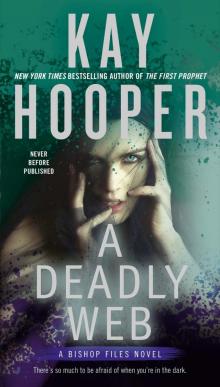 A Deadly Web
A Deadly Web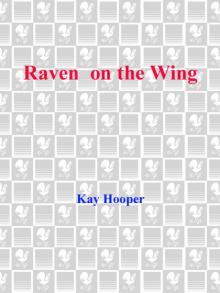 Raven on the Wing
Raven on the Wing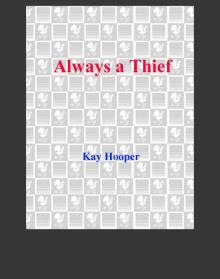 Always a Thief
Always a Thief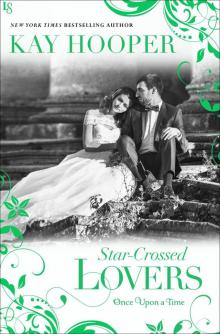 Star-Crossed Lovers
Star-Crossed Lovers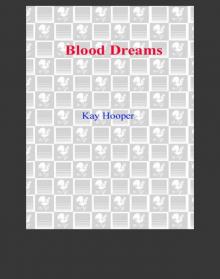 Blood Dreams
Blood Dreams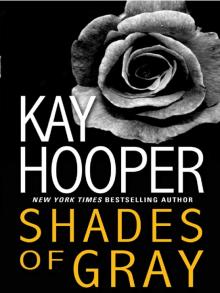 Shades of Gray
Shades of Gray Rebel Waltz
Rebel Waltz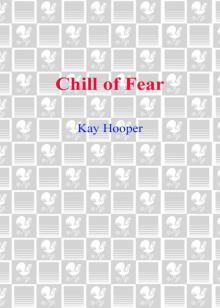 Chill of Fear
Chill of Fear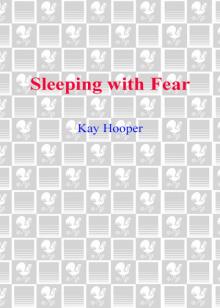 Sleeping With Fear
Sleeping With Fear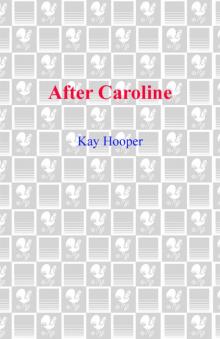 After Caroline
After Caroline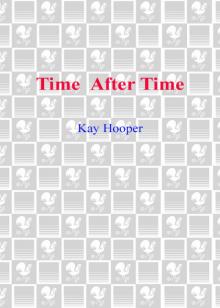 Time After Time
Time After Time Haunting Rachel
Haunting Rachel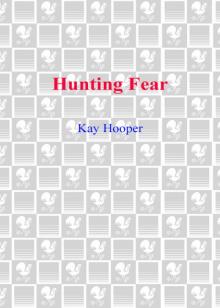 Hunting Fear
Hunting Fear Out of the Shadows
Out of the Shadows Whisper of Evil
Whisper of Evil Blood Sins
Blood Sins Hiding in the Shadows
Hiding in the Shadows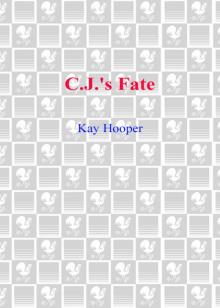 C.J.'s Fate C.J.'s Fate C.J.'s Fate
C.J.'s Fate C.J.'s Fate C.J.'s Fate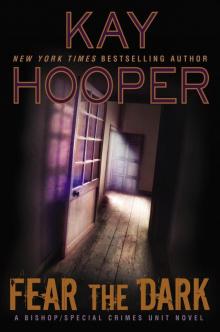 Fear the Dark
Fear the Dark Illegal Possession
Illegal Possession Stealing Shadows
Stealing Shadows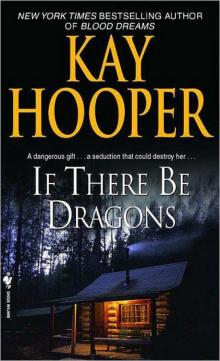 If There Be Dragons
If There Be Dragons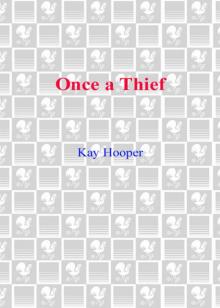 Once a Thief
Once a Thief In Serena's Web
In Serena's Web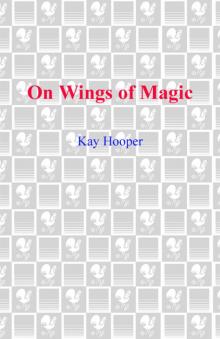 On Wings of Magic on Wings of Magic
On Wings of Magic on Wings of Magic Hostage
Hostage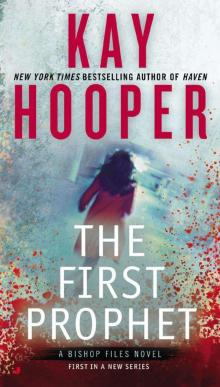 The First Prophet
The First Prophet Through the Looking Glass
Through the Looking Glass Golden Flames
Golden Flames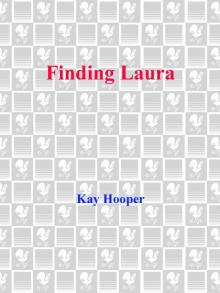 Finding Laura
Finding Laura Haven
Haven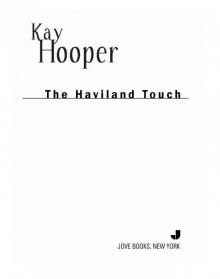 The Haviland Touch
The Haviland Touch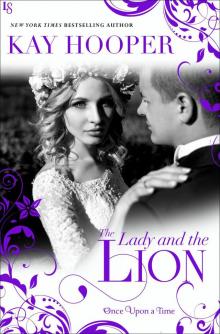 The Lady and the Lion
The Lady and the Lion Haunted
Haunted Velvet Ligntning
Velvet Ligntning Blood Ties
Blood Ties Adelaide, the Enchantress
Adelaide, the Enchantress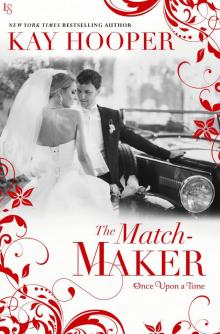 The Matchmaker
The Matchmaker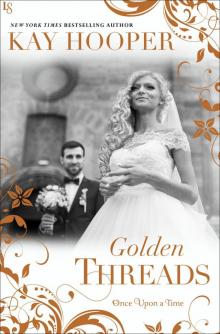 Golden Threads
Golden Threads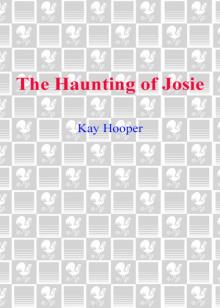 The Haunting of Josie
The Haunting of Josie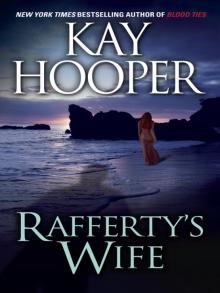 Rafferty's Wife
Rafferty's Wife Amanda
Amanda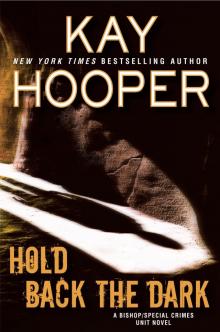 Hold Back the Dark
Hold Back the Dark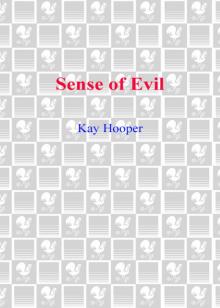 Sense of Evil
Sense of Evil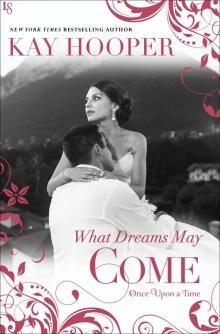 What Dreams May Come
What Dreams May Come Larger Than Life
Larger Than Life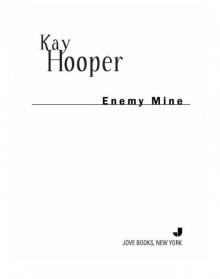 Enemy Mine
Enemy Mine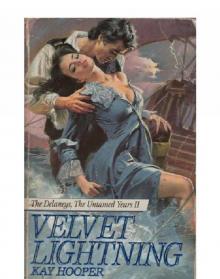 Velvet Lightning
Velvet Lightning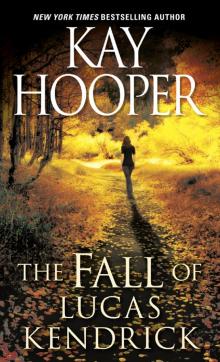 The Fall of Lucas Kendrick
The Fall of Lucas Kendrick Aces High
Aces High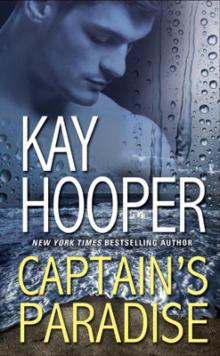 Captain's Paradise: A Novel
Captain's Paradise: A Novel The Wizard of Seattle
The Wizard of Seattle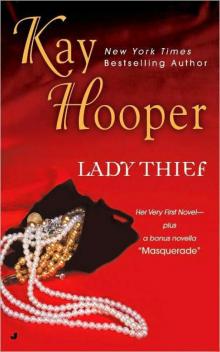 Lady Thief
Lady Thief Summer of the Unicorn
Summer of the Unicorn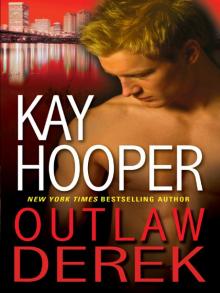 Outlaw Derek
Outlaw Derek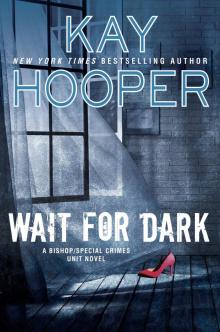 Wait for Dark
Wait for Dark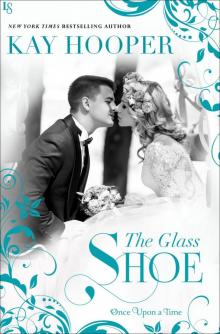 The Glass Shoe
The Glass Shoe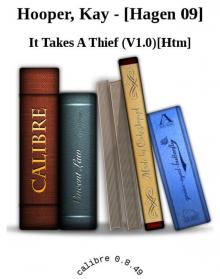 It Takes a Thief
It Takes a Thief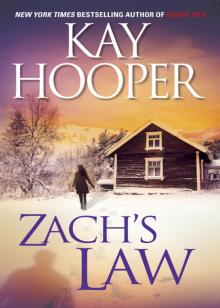 Zach's Law
Zach's Law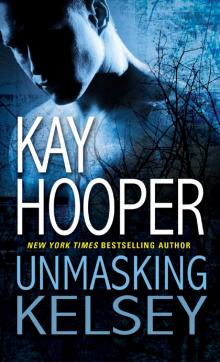 Unmasking Kelsey
Unmasking Kelsey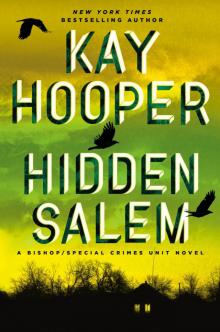 Hidden Salem
Hidden Salem